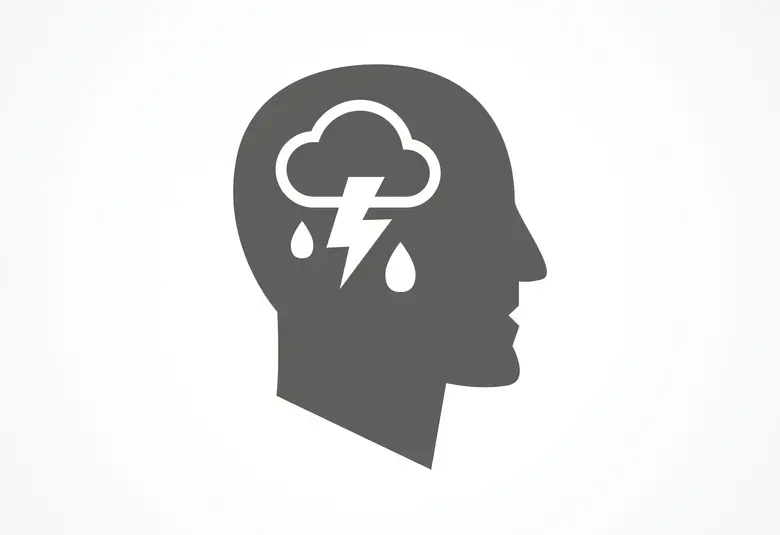In a presentation titled “Covid-19 pandemic: The worst of times and best of times?” at WCP 2021, Professor Pratima Murthy, Bangalore, India, highlighted learnings from the crisis that have led to improvements in mental health services worldwide, and her hope that they will result in more resilient, stronger, more connected and compassionate societies.
2021년에 개최된 세계 정신의학회(World Congress of Psychiatry, WCP)의 "코로나19 대유행: 최악의 시간과 최고의 시간?"이라는 제목의 강의에서 인도 방갈로르의 프라티마 무르티(Pratima Murthy) 교수는 위기로부터의 교훈을 통해 전세계적으로 정신건강 서비스가 개선되고, 결과적으로 더 회복력 있고 강력하며 연결되고 자비로운 사회가 되기를 바라는 그녀의 소망을 강조했습니다.
Could the Covid-19 lead to better mental health services?
코로나19가 보다 나은 정신건강 서비스로 이어질 수 있을까?
Resilience and social support are critical for enabling people to emerge from the pandemic mentally stronger.
대중들이 전염병 대유행으로부터 벗어나 정신적으로 더 강해지도록 하는 데 있어 회복력과 사회적 지원이 매우 중요합니다
The Covid-19 pandemic has threatened and continues to threaten physical and mental health and socioeconomic well-being globally; and everybody has been affected in one way or another, said Professor Murthy.
코로나19 대유행은 전세계적으로 신체적·정신적 건강과 사회경제적 안녕을 위협했고 또 위협하고 있으며, 모든 사람이 어떤 식으로든 영향을 받았다고 무르티 교수는 말했습니다.
The experience has led to a focus on improving mental health services and changes in mental health service provision worldwide, tailored to local contexts as necessary.
이러한 경험을 통해 정신건강 서비스를 개선할 뿐만 아니라, 필요에 따라 현지 상황에 맞게 전세계 정신건강 서비스 제공 방식을 변화시키는 데 초점을 맞추게 되었습니다.
Resilience and social support are critical to enable people to emerge from the pandemic mentally stronger, said Professor Murthy. In addition, effective communication and psychological services, and provision of care for marginalized communities are essential to reduce mental health morbidity.1
무르티 교수는 사람들이 전염병 대유행에서 벗어나 정신적으로 더 강력해지도록 하는 데 있어 회복력과 사회적 지원이 매우 중요하다고 말했습니다. 또한, 정신건강 이환율을 감소시키기 위해서는 효과적인 의사소통 및 심리적 서비스, 그리고 소외된 지역사회에 대한 돌봄 제공이 필수적입니다.1
Pragmatic approaches improving mental health services
정신건강 서비스를 개선하는 실용적인 접근법
An expansion of telemental health services and new mechanisms for delivering medications have improved access to and delivery of mental health services
원격 정신건강서비스의 확대와 약물전달을 위한 새로운 메커니즘으로 인해 정신건강 서비스에 대한 접근법과 전달법이 개선되었습니다.
Pragmatic approaches have improved mental health services during the Covid-19 pandemic, said Professor Murthy. These have included:
무르티 교수는 코로나19 대유행 기간 동안 실용적인 접근법이 정신건강 서비스를 개선했다고 말했습니다. 여기에는 다음과 같은 것들이 포함됩니다.
Innovation and creative thinking to scale up treatment
치료법을 확장할 수 있는 혁신 및 창의적 사고
Encouraging communities to support and check on each other, to recognize when a person is distressed, and to reach out to people who are isolated
서로를 지원 및 확인하고, 누군가가 괴로울 때 이를 인식하며, 고립된 사람들에게 손을 내밀도록 지역사회를 장려하는 것
Telemental health services improving access to mental health counselling and virtual psychiatric services
정신건강 상담 및 가상의 정신과 서비스에 대한 접근성을 향상시키는 원격 정신건강 서비스
Developing mechanisms for referral and delivery of essential medications, including psychiatric medicines2
정신과 약물을 포함한 필수 의약품의 추천 및 전달을 위한 메커니즘 개발2
Positive aspects on well-being
웰빙에 대한 긍정적인 측면
Covid-19 has resulted in positive systemic changes to health services
코로나19는 의료서비스에 긍정적인 체계적 변화를 가져왔습니다.
Professor Murthy highlighted a survey of people in Poland that has demonstrated positive aspects on well-being resulting from the pandemic, for instance, respondents were re-evaluating their lives and priorities and strengthening social capital, developing new skills and new knowledge, and spending more quality time with their families.3
무르티 교수는 폴란드인을 대상으로 한 설문조사에서 팬데믹으로 인해 웰빙에 대한 긍정적인 측면이 나타난 것을 강조했습니다. 예를 들어 응답자들은 자신의 삶과 우선순위를 재평가하고, 사회적 자본을 강화하며, 새로운 기술과 지식을 개발하고, 가족과 함께 더 많은 양질의 시간을 보내고 있었습니다.3
Systemic changes to improve health services for better management of further pandemics and environmental benefits were other positive aspects identified by the study.3
추가적인 팬데믹과 환경적 편익을 보다 효과적으로 관리하기 위한 의료서비스 개선을 목표로 하는 체계적 변화는 연구에서 확인된 또 다른 긍정적인 측면이었습니다.3
The pandemic has also led to positive innovations in health services, such as contact tracing, community engagement, infection prevention, information and communication technologies, and policies and incentive frameworks to stimulate creativity and entrepreneurship.4
또한 팬데믹은 접촉 추적, 지역사회 참여, 감염 예방, 정보통신 기술, 창의성과 기업가 정신을 자극하는 정책 및 인센티브 프레임워크와 같은 의료서비스의 긍정적인 혁신으로 이어졌습니다.4
Resilience can reduce the mental health effects of Covid-19
회복력은 코로나19의 정신건강에 대한 영향을 감소시킬 수 있습니다
The importance of resilience
회복력의 중요성
Resilience — which may reflect an interaction between internal factors, such as an individual’s cognitive capacity, stress response, personality traits, and physical health, and external factors, such as social status and financial stability5 — is important to reduce the mental health effects of Covid-19, concluded Professor Murthy. She suggested meditative practices, such as the Bhagavad Gita and yoga to help promote resilience.
회복력은 개인의 인지능력, 스트레스 반응, 성격 특성, 신체적 건강과 같은 내부 요인과 사회적 지위 및 재정적 안정성과 같은 외부 요인 사이의 상호작용을 반영합니다.5 무르티 교수는 이러한 회복력이 코로나19의 정신건강에 대한 영향을 감소시키는 데 중요하다며 결론지었습니다. 그녀는 회복력을 증진시키는 데 도움이 되는 바가바드 기타(Bhagavad Gita) 및 요가와 같은 명상 수행법을 제안했습니다.
Our correspondent’s highlights from the symposium are meant as a fair representation of the scientific content presented. The views and opinions expressed on this page do not necessarily reflect those of Lundbeck.




